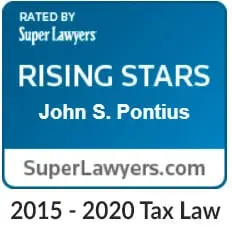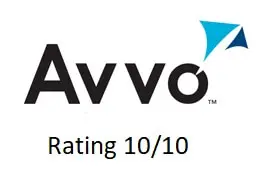Updates on Denial or Revocation of U.S. Passports for Seriously Delinquent Tax Debtors
Tax Talk, Tax Section of the Maryland State Bar Association, Spring 2018
By John Pontius
In December 2015, Congress passed and President Obama signed into law the Fixing America’s Surface Transportation (FAST) Act (Public Law Number 114-94), creating Internal Revenue Code section 7345. This new Code section requires the Secretary of the Treasury to notify the Secretary of State if a certification has been made that an individual has a “seriously delinquent tax debt.” Thereafter, the Secretary of State generally will deny a passport application or revoke a current passport of the seriously delinquent taxpayer.
The State Department is responsible for issuing U.S. passports. The IRS does not have the authority to issue or deny a U.S. passport. Under 22 U.S.C. 2714(a), the State Department may issue a U.S. passport to a taxpayer in emergency situations or for humanitarian reasons regardless of the IRS certification.
When presented with a certification for a taxpayer’s seriously delinquent debt, the State Department will hold the passport application or renewal request for 90 days. This allows the taxpayer to resolve any certification issues with the IRS before the State Department denies an application for a passport or renewal because of tax debt. See Internal Revenue Manual section 5.1.12.27.7 (12-20-2017).
On January 16, 2018, IRS Notice 2018-1 alerted taxpayers that the IRS and State Department would begin implementation of section 7345. However, regulatory guidance has not yet been issued regarding coordination between these two agencies. Since regulatory guidance could be issued at any moment and thus begin implementation, now is the time for taxpayers to resolve their tax debts or risk the loss of their passport.
Section 7345(b)(1) defines seriously delinquent tax debt as follows:
- Unpaid,
- Legally enforceable tax liability of an individual,
- Greater than $51,000, and
- The IRS has filed a Notice of Federal Tax Lien and the period to challenge it has expired or the IRS has issued a levy.
The $51,000 threshold is indexed for inflation and includes penalties and interest. Once a taxpayer is certified, partially paying the balance under the threshold will not reverse the certification. See Internal Revenue Manual section 5.1.12.27.2.2 (12-20-2017).
Beyond fully paying the tax debt, the following are several statutory exceptions to seriously delinquent tax debt pursuant to section 7345(b)(2):
- Paying the debt under an approved installment agreement under section 6149 or paying the debt under an accepted offer in compromise under section 7122,
- A pending collection due process hearing under section 6330, or
- A pending innocent spouse election under section 6015(b) or (c) or pending innocent spouse relief under section 6015(f).
Internal Revenue Code Section 7508(a) provides another statutory exception for taxpayers serving in a combat zone.
Pursuant to Internal Revenue Manual section 5.1.12.27.4 (12-20-2017), there are additional exclusions from certifications of seriously delinquent tax debt. The passports of the following delinquent taxpayers will not be at risk:
- Debt in currently not collectible (CNC) status,
- Debt from tax related to identity theft,
- Debt in bankruptcy,
- Debt in a pending installment agreement or offer in compromise,
- Located in a disaster area, or
- Debt pending an IRS adjustment that will fully pay the tax.
Section 7345(c) requires the IRS to notify the Secretary of State within 30 days of the reversal of a certification of seriously delinquent tax debt that was fully satisfied, becomes legally unenforceable, or ceases to be a seriously delinquent debt based upon the statutory exclusions. Section 7345(d) requires the IRS to contemporaneously notify the taxpayer both of certification and reversal of certification, as applicable.
If the taxpayer believes the certification is erroneous, he or she can request the certification reversal by calling the phone number on the Notice CP508C, “Notice of certification of your seriously delinquent federal tax debt to the State Department.” Taxpayers can seek judicial review of the certification in a U.S. district court or the U.S. Tax Court under section 7345(e).
Taxpayers with seriously delinquent debt of over $51,000 who do not want to risk the denial or revocation of their U.S. passports should consider resolving their tax debts as soon as possible.
Originally published in Tax Talk by the Tax Section of the Maryland State Bar Association.









